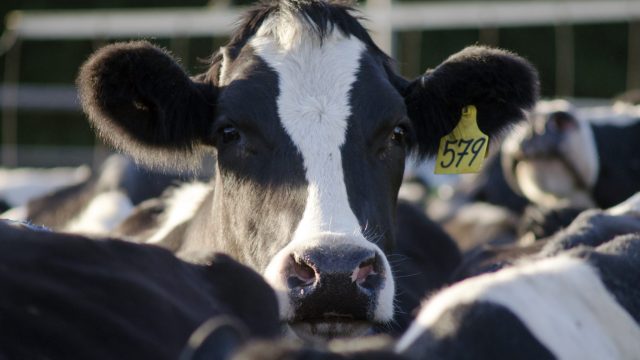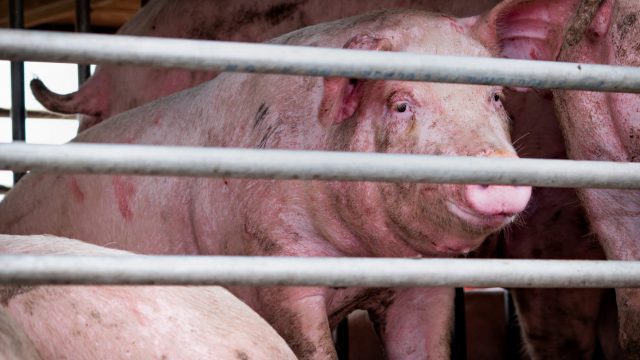
Opportunities for Law Students & Legal Professionals
Legal Intern Volunteer Opportunities
Slaughter Free Cities, Slaughter free Chicago (headquarter)
Chicago, Illinois
Slaughter Free Cities (“SFC”) is a campaign launched in 2018 by Free From Harm, a nonprofit 501(c)(3) organization dedicated to helping end animal exploitation through grassroots activism and public education. The mission of Slaughter Free Cities is to end slaughter in cities around the United States for the benefit of animals, workers, communities and the planet. We believe that humans and all species deserve liberation. We cannot claim to value or experience true liberation as we oppress others, a principle expressed in Martin Luther King Jr.’s famous words, “Injustice anywhere is a threat to injustice everywhere.”
Our campaign enjoys widespread support in cities and small towns alike since most communities oppose slaughterhouses for a wide range of reasons. Still, slaughterhouses remain within cities and towns throughout the United States, in close proximity to residential buildings, preschools, and other businesses. In many cases, the current systems for regulating existing slaughterhouses are broken. SFC has identified issues of licensing, zoning, consumer protection, health code and other violations that remain unenforced by state and municipal agencies. Our strategy is to rally communities, activists, local media and city officials to demand that existing laws be enforced, which would effectively close noncompliant slaughterhouses.
The original SFC chapter is Slaughter Free Chicago, part of a larger SFC campaign with the mission of creating chapters in various cities around the country and globe. Currently there are SFC chapters located in the following cities: Chicago, Toronto, Dallas, Hackettstown (NJ), Los Angeles, Milwaukee, New York City, and St. Louis, and Toronto. More information is available at: https://slaughterfreechicago.com/
Description
Volunteer legal interns can work remotely from any location. SFC does not employ staff attorneys. This means that you should arrange for your legal work to be reviewed by a licensed attorney, for example by a law professor. You may be able to arrange to receive academic credit for your work through your university. Alternatively, if your law school requires or encourages volunteer work, this could be an opportunity for you to fulfill those obligations through your university.
Volunteer legal interns are assigned a variety of tasks depending on which chapter you volunteer for, and what projects the chapter is focusing on. All volunteers will begin by familiarizing themselves with the basic statutes and regulations that govern the administrative agencies in their chapter’s city such as state departments of agriculture and city departments of public health codes pertaining to slaughterhouses. Tasks can include but are not limited to the following:
- Researching and writing legal memoranda
- Researching legal code and searching for code violations including violations of city ordinances, state agency rules, and federal agency laws that can be applied to slaughterhouses
- Drafting, submitting, and tracking Freedom of Information Act (“FOIA”) requests to city, state or federal agencies
- Reviewing responsive documents obtained through FOIA requests
- Where violations are uncovered, determine which agencies are responsible for enforcement and draft informal agency complaints to report these violations
- Communicate respectfully with agency and government officials, for example, to follow up on FOIA requests, or to obtain instructions for moving complaints forward to enforce against violators
- Where a chapter has litigation pending, assist outside counsel with any ongoing lawsuits and seek novel theories for bringing additional suits
- Develop chapter templates, communications content, or training materials
- Develop your own project! For example, if your law school program has an advanced writing requirement, you could turn your work for SFC into a research paper or law review article!
Qualifications
- An interest in animal protection and community service is encouraged
- Familiarity with internet and legal research tools, MS Office suite, Google Docs, and Zoom
- Strong work ethic and capability to work independently. Maintain a timesheet of your work
- Maintain a professional attitude, treat others with respect, and keep aspects of your work confidential
- Keep in mind that you may be exposed to emotionally difficult issues concerning animal cruelty as SFC focuses on farmed animal slaughter compliance
- Law students are preferred. However, if you are considering law school and/or have an interest in animal protection, please contact us about additional opportunities
Contact:
Robert Grillo
robert@freefromharm.org
More information:
https://slaughterfreechicago.com/
How We Work
Related
-
Animal Legal Defense Fund Grant Supported Washington Attorney General’s Enforcement of Animal Cruelty Law
The judge sentenced a Snohomish County resident for killing then displaying neighborhood wildlife and shooting a kitten in the eye.April 18, 2024 News -
REPORT: 95 Percent of Consumers Prefer “Climate-Friendly” Products, But Labels Oversell Emission Reductions
New report reveals how misleading labels lead to increased confusion among consumers searching for more sustainable, less environmentally damaging products.April 2, 2024 Press Release -
Lawsuit Filed Demanding FDA Respond to Petitions Seeking to Ban Ractopamine
FDA’s approval for ractopamine relied primarily on safety studies conducted by the drugmaker.March 26, 2024 Press Release



